
The economy of the Republic of Korea isexport-driven with exports reaching itspeak so far in 2012 with 54.09 percent ofgross domestic product (GDP). The latestvalue from 2022 is 48.26 percent. Hence,about half of the economy depends onexports and the fluidity, reliability, andefficiency of its supply chains.Like other countries, the Republic ofKorea is dependent on predictable,environmentally sound, and costefficient flows of goods coming into thecountry, both as components being usedto produce goods to be consumed orexported. Smooth imports and exportsis a prerequisite for supply and wealth o
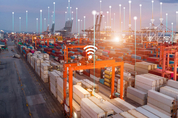
A government-driven pilot program for the ‘supply of Internet of Things (IoT) devices for shipping containers,’ have been completed, according to the Ministry of Oceans and Fisheries announcement last Wednesday. The pilot program is to install IoT devices on the external surfaces of shipping containers to allow shipping firms to regularly monitor the status of containers. A total of 4,160 devices have been supplied to Korean national shipping firms over 2 years since 2021. The full project is a four-year development plan from 2021, with Dong-A University as the organizer with 14 other particip
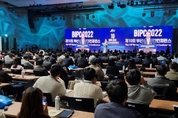
The Busan International Port Conference (BIPC, Busan International Port Conference) hosted by the Busan Port Authority (BPA) celebrates its 10th anniversary this year. The conference on November 4th was held online and offline at the same time as it has been since the pandemic, but thanks to the lifting of indoor gathering restrictions, many people attended the Busan Port International Exhibition and Convention Center (BPEX) Under the theme of "Adapts and Advances," three sessions were held. Top experts in the shipping and port sectors - including Tim Power, managing director of Drewry, Frank
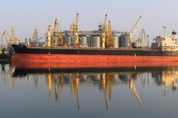
The perfect storm of crises hitting the world has strong trade dimensions, hence trade solutions must be at the heart of global efforts to respond to the challenges, UNCTAD Secretary-General Rebeca Grynspan said on 13 October. The combined effects of the COVID-19 pandemic, the climate emergency and the war in Ukraine have accelerated a global cost-of-living crisis that could plunge tens of millions more people across the world into hunger and poverty this year. Rising trade costs, especially in maritime transport, have contributed to soaring food and energy prices, which have hit record levels
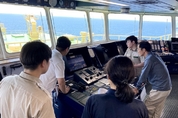
Avikus, a company specializing in developing autonomous navigation solutions, has succeeded in a large-scale vessel’s crossing the ocean for the first time in the world. The company was founded in January last year by HD Hyundai(previously Hyundai Heavy Industries), which is one of the world’s biggest shipbuilders to expedite the development of digital technologies for vessels. Avikus announced on Thursday that it has successfully completed the autonomous ocean crossing of the 180,000 cubic meters super-large LNG carrier named ‘Prism Courage’ by collaborating with SK Shipping. The ship is equi
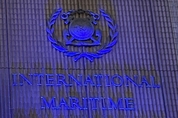
On 30 September 2021, IMO and the global maritime community came together to celebrate the annual World Maritime Day, with a focus on this year's theme: "Seafarers: At the core of shipping's future". As part of the celebrations, which are a fixture in the global shipping calendar, four seafarers joined in an interactive webinar to discuss issues of importance to the future of the sector. In addition, the IMO Headquarters in London became one of several iconic landmarks to be illuminated in blue, kicking off an annual initiative to unite the maritime community and raise awareness of the vital c

A.P. Moller - Maersk said on Tuesday that it is ordering eight large, ocean-going container vessels running on “carbon-neutral methanol”. The vessels will be built by Hyundai Heavy Industries (HHI) and have a nominal capacity of approx. 16,000 containers (TEU). The agreement with HHI includes an option for 4 additional vessels in 2025. Each ship will cost $175 million, and the total cost will be $1.4 billion, according to reports. The series will replace older vessels, generating savings on annual CO2 emissions totaling around 1 million tons. “They will hit the water from early 2024”, said Mor
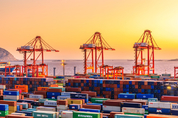
Pre-occupation of vessel space by Chinese shippers has emerged as a global trade issue. Korean companies are also struggling to find ships to transport exports on time. China's spot rates are soaring day by day, and vessels already full of cargo at Chinese ports cannot afford to load more in Busan. China has become a black hole of vessel space. On July 30, the comprehensive SCFI stood at $4,196, about 3.8 times higher than $1,103, where it stood at this time last year. The European route was $7,395 (TEU), and the USWC was $5,518 (FEU). Domestic exporters are suffering as vessels are filling u
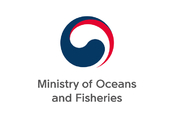
The Ministry of Oceans and Fisheries (MOF; Minister Moon, Seong-hyeok) stated that according to the revised “Regulations for the Prevention of Pollution from Ships,” the permissible nitrogen oxide (NOx) emission limit for domestic ships will be strengthened starting May 19th (Wednesday). Up to now, “Tier 1*” from the table below has been applied to domestic ships constructed in or after 2006 while “Tier 2**” has been applied to ships constructed in or after 2013. Tier 2 requires a 20% reduction in the emission of nitrogen oxides compared to Tier 1. However, when a ship’s engine was replaced wi
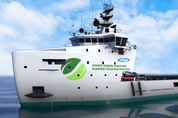
The Ministry of Oceans and Fisheries said it plans to develop an versatile testing platform by 2025 to join global efforts to reduce greenhouse gas emissions and create an eco-friendly maritime industry. Global shipbuilding and shipping markets are hastening a paradigm shift from the existing bunker oil vessels to an eco-friendly ship system in response to the International Maritime Organization's tightening regulations and the EU emissions trading system. Following the implementation of the Act on the Promotion of Environmentally Friendly Ship Development and Distribution in January of last y